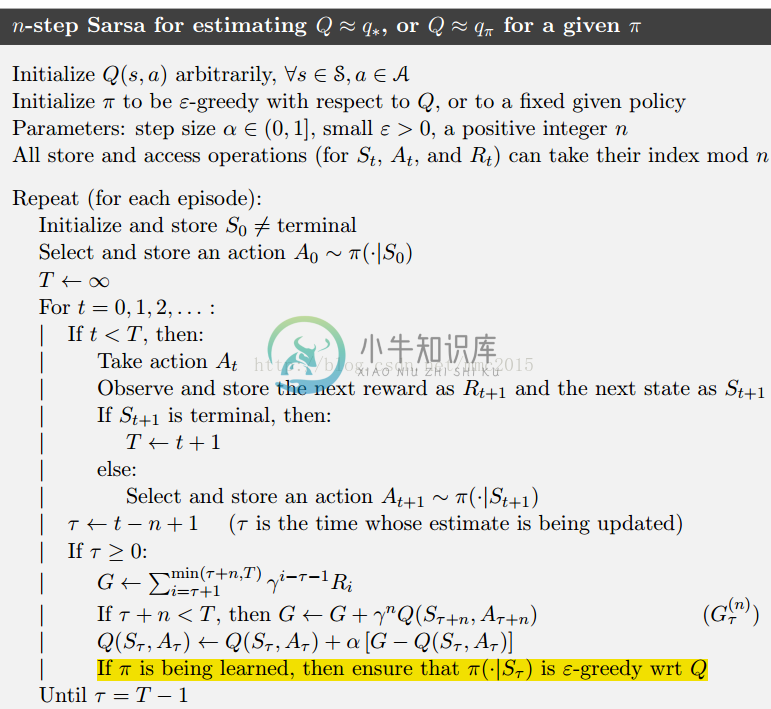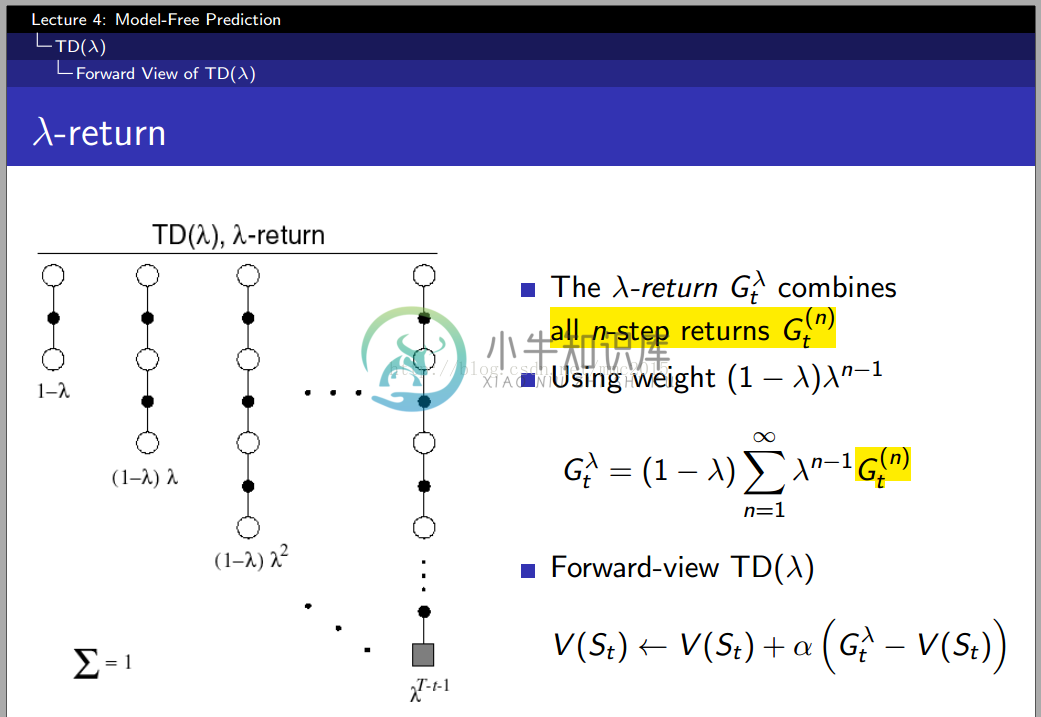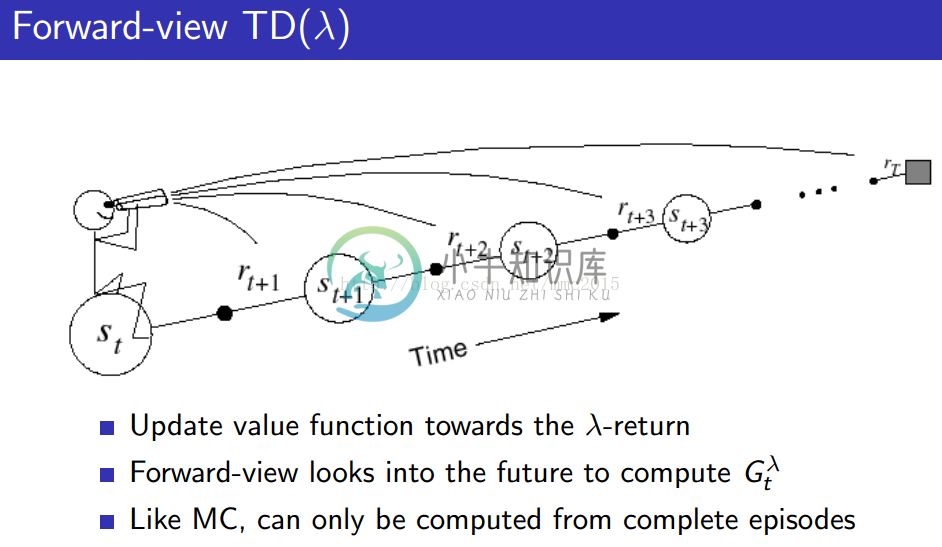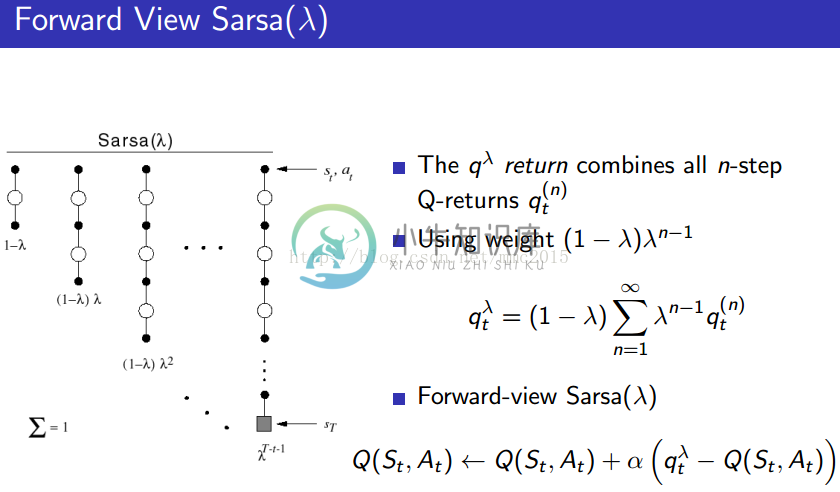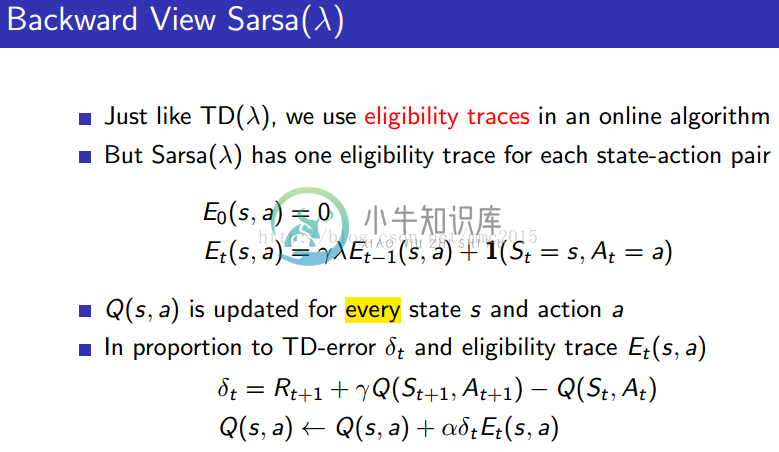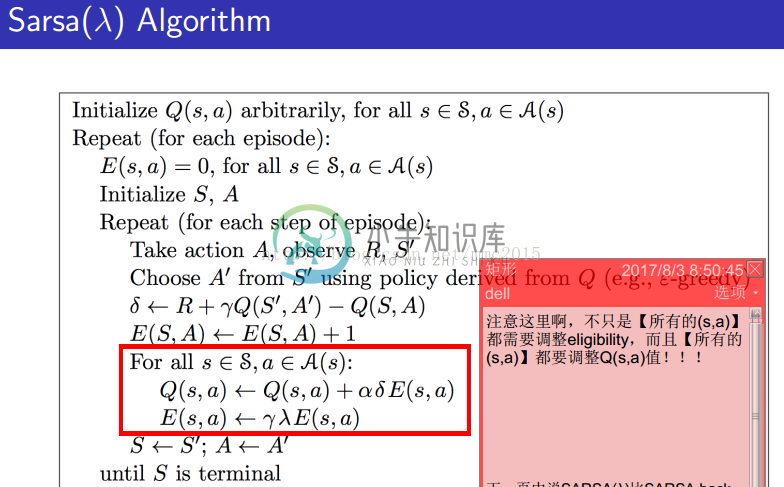Multi
7.1n-step TD Prediction
The methods that usen-step backups are still TD methodsbecause theystill change an earlier estimate based on how it differs from a later estimate.
n-step return: If t+n≥T(if then-step return extends to or beyond termination), then all the missing terms are taken as zero
If t+n≥T(if then-step return extends to or beyond termination), then all the missing terms are taken as zero
==》这个很容易理解,最后n步之内,还剩多少步就令return等于所有剩余步数的reward和。相应的,前n-1步也是没有任何更新过程,Note that no changes at all are made during the firstn-1 steps of each episode.。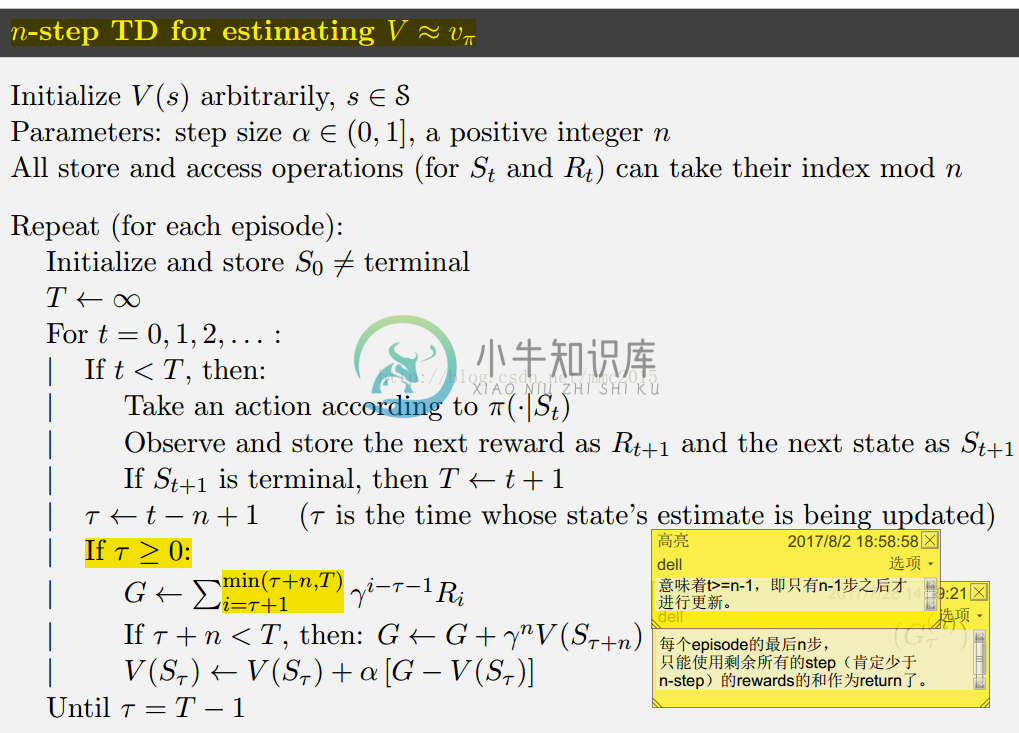 n-step return的error往往更小:
n-step return的error往往更小: Methods that involve an intermediate amount of bootstrapping are important because they will typically perform better than either extreme.
Methods that involve an intermediate amount of bootstrapping are important because they will typically perform better than either extreme.
7.2 n-step SARSA
将V改成Q即可,整个流程基本一致:
想一下为什么n-step的方法能更有效地更新Q-table:因为每一个好的(s,a)或坏的(s,a)在更新过程中都会被使用n次(看上面伪代码),这样可以有效的backup到n-step之前的相关(s,a)。
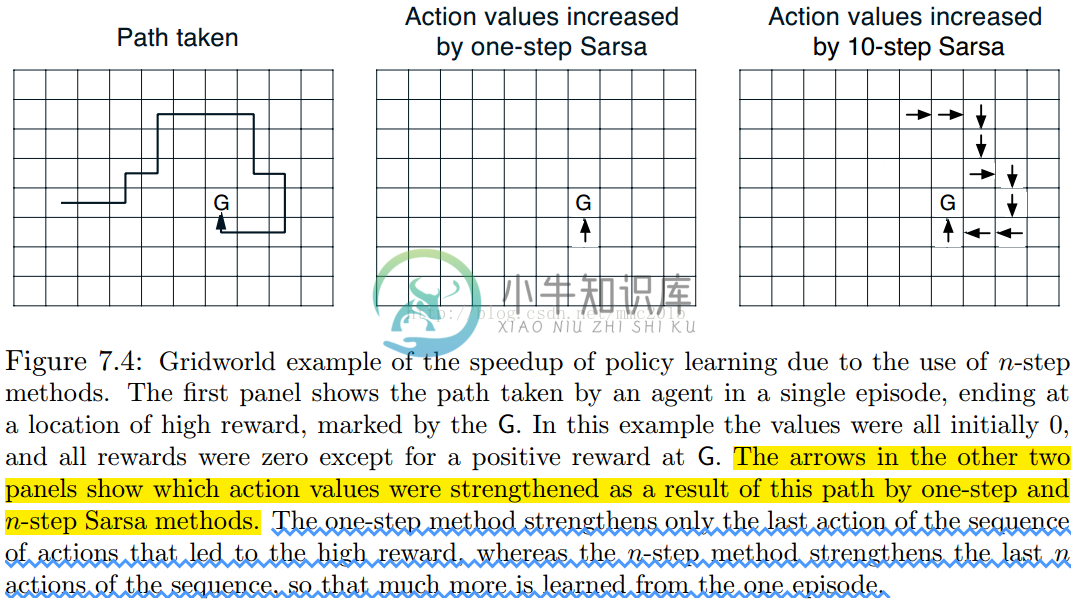 7.3n-step Off-policy Learning by Importance Sampling
7.3n-step Off-policy Learning by Importance Sampling
The importance sampling that we have used in this section and in Chapter 5 enables off-policy learning, but at the cost of increasing the variance of the updates. The high variance forces us to use a small step-size parameter, resulting in slow learning. It is probably inevitable that off-policy training is slower than on-policy training|after all, the data is less relevant to what you are trying to learn.
7.4 Off-policy Learning Without Importance Sampling: Then-step Tree Backup Algorithm
7.3/7.4在实际中很少用吧,跳过去了。其中12章的eligibility traces应该是n-step方法部分应该掌握的重点。
silver课程的lecture 4中30页之后的内容、lecture 5中26-30页关于n-step algorithm以及eligibility trace的介绍非常简单明了。
forward-view TD(λ):
Forward view provides theory
Backward view provides mechanism
Update online, every step, from incomplete sequences
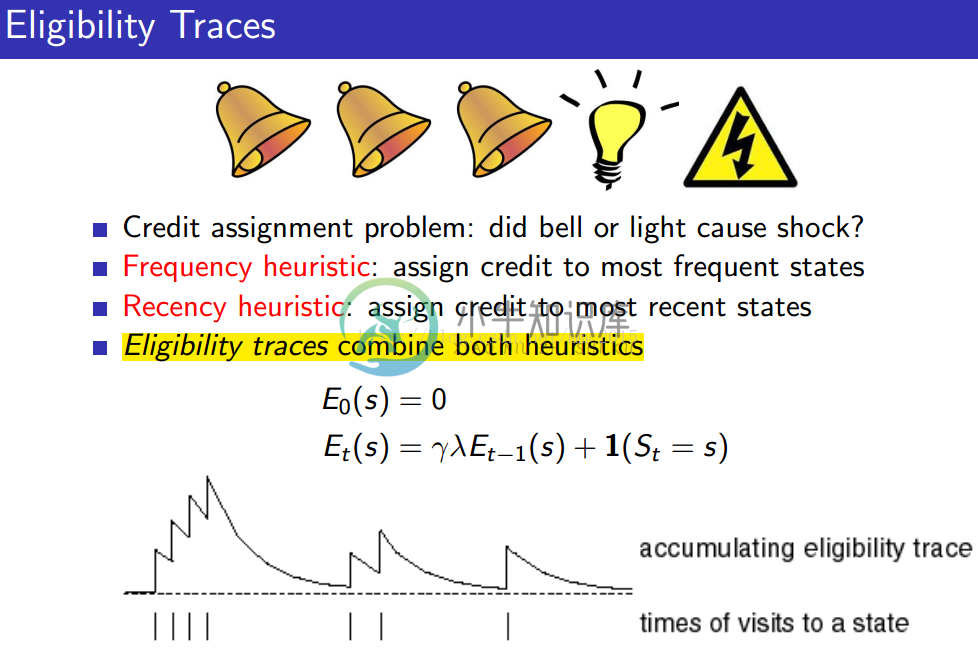
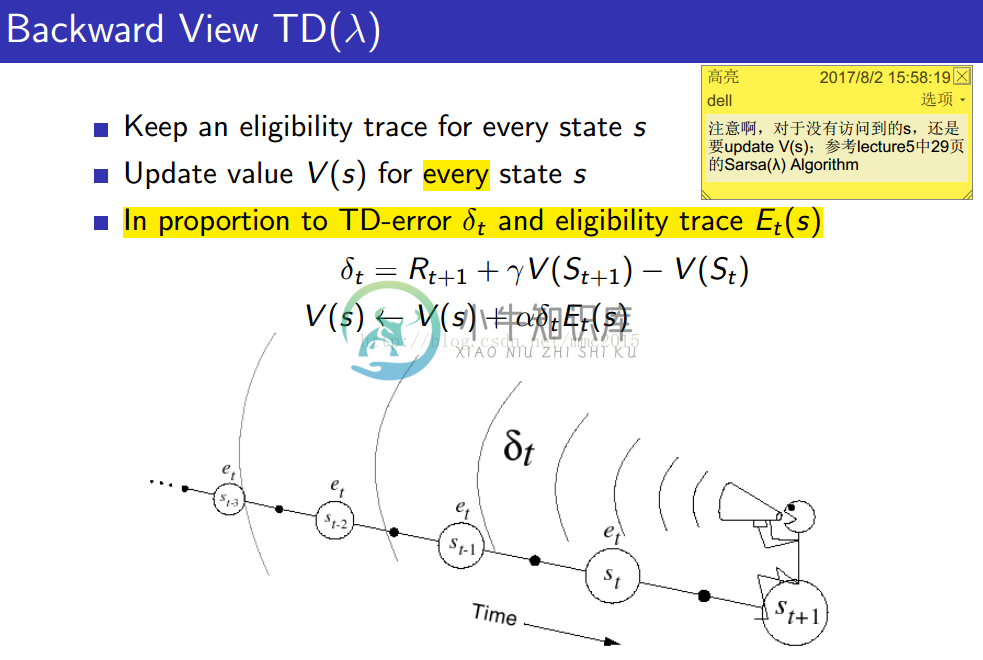 λ=0,TD(λ)就是之前提到的TD(0)方法;λ=1,forward-view TD(λ)就是之前提到的MC方法,backward-view 的online TD(λ)近似是之前提到的MC方法。
λ=0,TD(λ)就是之前提到的TD(0)方法;λ=1,forward-view TD(λ)就是之前提到的MC方法,backward-view 的online TD(λ)近似是之前提到的MC方法。
forward-view SARSA(λ):


